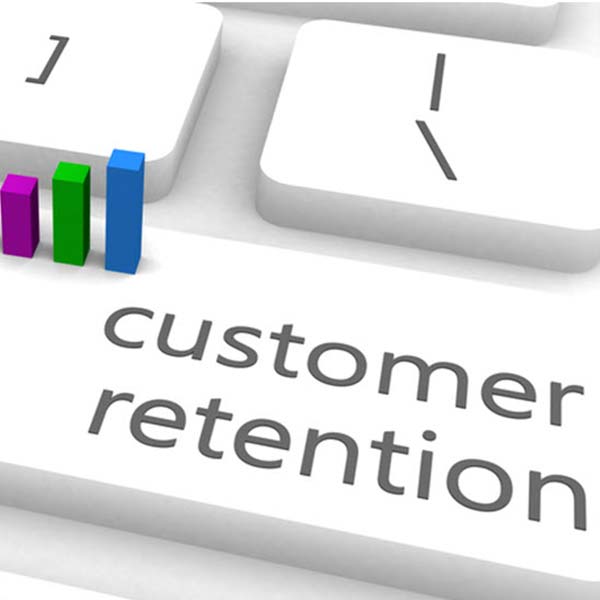
Finding new customers can cost a lot of money. You spend your marketing budget trying to get their attention. Your sales team spends time building trust and closing the sale.
Your administrative staff spends time on-boarding them with paperwork and data entry time. Once they are in the fold, it is a shame to lose them because replacing them means we do it all over again.
Choosing the right CRM system that’s well-designed and capable such as Dynamics 365 can provide some powerful insights into this topic. If the goal is to retain customers once we find them, then we need to get our hands on some data to track their buying habits and their sentiments toward our company.
If we have our finger on the pulse of our customers, we will get some early warning signs when they may be starting to move on from our products or services. A gives us this pulse and can play a large role in avoiding lost customers.
Here are 5 methods our CRM consultants at ThesisTech use to help clients keep a close eye on each customer.
1. Sales Data Integration
If you offer a product or service that relies on periodic purchases by your customers, you must monitor sales trends on a continuous basis. Sales data can be put in the hands of the right people (the sales team) by integrating your CRM with your accounting system.
This is a very common CRM integration, and it allows for the creation of powerful trends, dashboards, and reports. This data helps answer questions such as: Are sales up or down? Is order size growing or shrinking? Is gross profit holding steady?
These questions can be answered by the customer and by your product. When a trend heads in the wrong direction, you can find it fast and avoid losing a customer by taking smart actions to reverse the trends.
2. Exception-Based Notifications
It may be great to have sales data at your fingertips right in the CRM, but what if you manage thousands of customers? With powerful workflow tools such as , we can build automated notification systems to monitor trends and give you the heads up when you need it.
Related Post → Dynamics 365 CRM and Microsoft Teams Integration
For example, an automated email can be sent to management showing all customers who are trending down in sales this quarter. Worried that the email might get lost in your busy inbox? Then maybe a text message or a Microsoft Teams chat message would be more effective. The point is that the system can reach out and let you know when you have a problem so you can take the necessary action.
3. Customer Analysis Report
One of the most powerful CRM reports we build for our clients is a customer-specific business analysis report. This report shows sales trends over time, such as current year vs. last year by product or service.
Many of our clients use these reports in their communications with their customers. These discussions can often surface issues that need to be addressed such as product quality issues, training needs, or new competitor situations.
4. Sentiment Analysis
The Dynamics 365 CRM system has some interesting AI capabilities that can monitor the sentiment of your customers. This is accomplished through an automated evaluation of customer email interactions.
When the system detects language that seems to have a negative tone, notifications and workflows can be triggered to inform the right people. This is a very helpful feature if you have a lot of customers and/or a lot of salespeople to keep track of.
5. Cross-Sell Opportunities
Losing a customer is an expensive situation and should be avoided, of course. However, another expensive situation can arise when we fail to offer and sell our full line of products and services to each customer.
A CRM system for small businesses as well as one for those a bit larger in size can be used to highlight cross-sell opportunities within your customer base. These are often the best opportunities for additional sales because our customer already knows and trusts us and will be open to other things we may have to offer.
Data is a powerful tool for any sales organization, and the CRM system is usually the best way to deliver powerful data directly to the team members who can take action. This is especially true when it comes to potential lost customers.
About the Author
Brian Busscher is Founder and CEO of Thesis Technologies, an implementation partner for Dynamics 365 and Microsoft’s Power Platform. If you would like to discuss how Dynamics 365 might be a fit for your organization, please contact the Thesis team at (888) 705-7253.
Find other Dynamics 365 blog posts here.
This blog post has been updated.